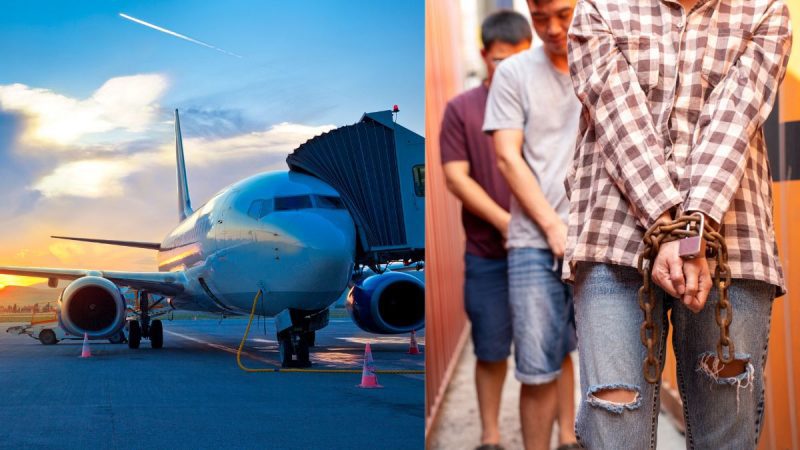Cyber slavery is a modern form of human trafficking. This crime has emerged as a grave issue in countries like Cambodia, Myanmar, Laos, and Hong Kong. The crimes take place under the vulnerable guise of employment opportunities. This pernicious practice involves the coercion of individuals into digital labour, primarily for fraudulent activities.
The Mechanisms Of Cyber Slavery
Cyber slavery typically begins with deceptive job advertisements promising lucrative positions in call centres, online marketing, or customer service. Desperate for employment, once they arrive, they find themselves trapped in tightly controlled environments. They are forced to work long hours under threat of violence or other forms of coercion, engaging in fraudulent activities such as online scams, fake cryptocurrency trading, and romantic swindles. Their employers, often part of larger criminal networks, confiscate their passports and other identification documents. This escapes or seeking help exceedingly difficult. The physical and psychological abuse that these individuals endure is another act of brutality.
Recently in July, investigations have thrown light on a dangerous job fraud that harmed many, including over 5,000 Indians stranded in Cambodia. They were forced to carry out criminal internet operations. According to an article published by NDTV, the administration announced earlier this year that approximately 250 Indians had been rescued. These individuals were promised respectable work. However, they were duped into performing illegal online jobs, according to India’s foreign ministry. When they arrived in Siem Reap, Cambodia, their passports were confiscated, and they were forced to work in cyber scamming contact centres that targeted Indians.
Also Read: Cambodia Angkor Air To Introduce Direct Flights Between Delhi And Phnom Penh From June 16
Efforts To Combat Cyber Slavery
With an increasing number of travellers visiting nations known for ‘cyber slavery,’ the Ministry of Home Affairs has asked the Ministry of Civil Aviation to direct all airport operators to educate, inform, and raise awareness among passengers flying abroad. The MHA has warned the Civil Aviation Ministry that, while numerous steps have been implemented to combat cyber slavery in Cambodia, Myanmar, Laos, and Hong Kong, it is critical to notify and raise awareness at all airports. The ministry has also supplied information on how to alert passengers against cyber slavery using data. All airports must follow these guidelines for at least four weeks, following which the situation will be evaluated.
Earlier this year, the Indian Embassy issued an advisory for job seekers in Cambodia. It directed Indian nationals to seek work exclusively through authorized agencies designated by the Ministry of External Affairs. The Indian embassy stated that these phoney jobs are for positions such as ‘Digital Sales and Marketing Executives’ or ‘Customer Support Service’ by dubious organisations. They are engaged in call-center fraud and cryptocurrency fraud.
Cover image credits: Canva

